HI5016 Week 10: Economies of Scale in International Trade Report
VerifiedAdded on 2023/06/04
|8
|541
|190
Report
AI Summary
This report delves into the concepts of internal and external economies of scale within the context of international trade. It begins by defining economies of scale and highlighting the role of globalization in facilitating international trade. The report then explores internal economies, detailing various categories such as technical, financial, marketing, and managerial economies, and illustrates their impact through examples like Ford's expansion. Subsequently, the report examines external economies of scale, including economies of concentration, information, and specialization, and how these are influenced by international trade. It uses examples like the comparative advantage of the United States in chemical production and the role of financial institutions in supporting firms involved in international trade. The report concludes by emphasizing the importance of economies of scale for firms to remain competitive in the global market, especially with the increasing competition in the international trade.
1 out of 8
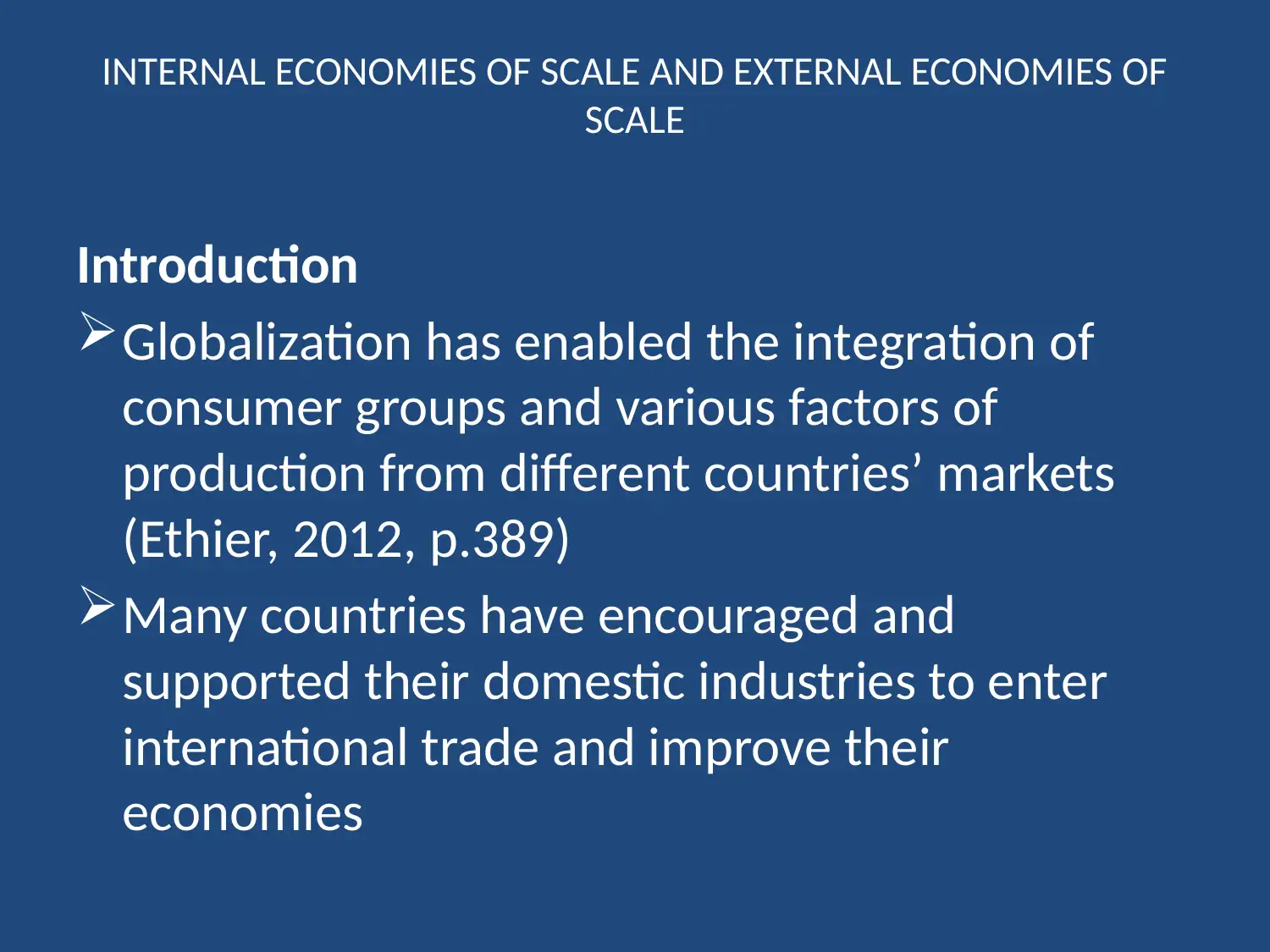
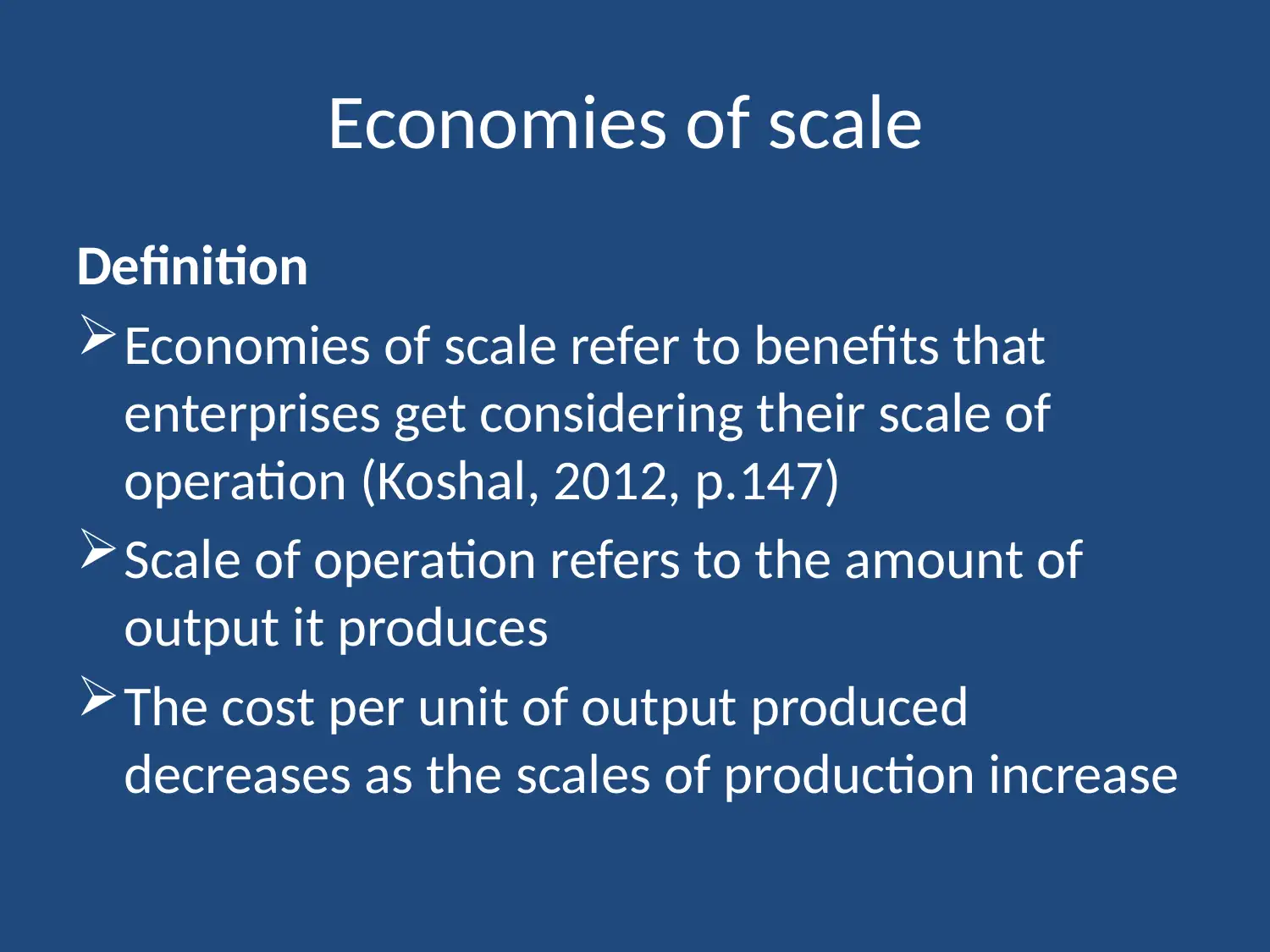
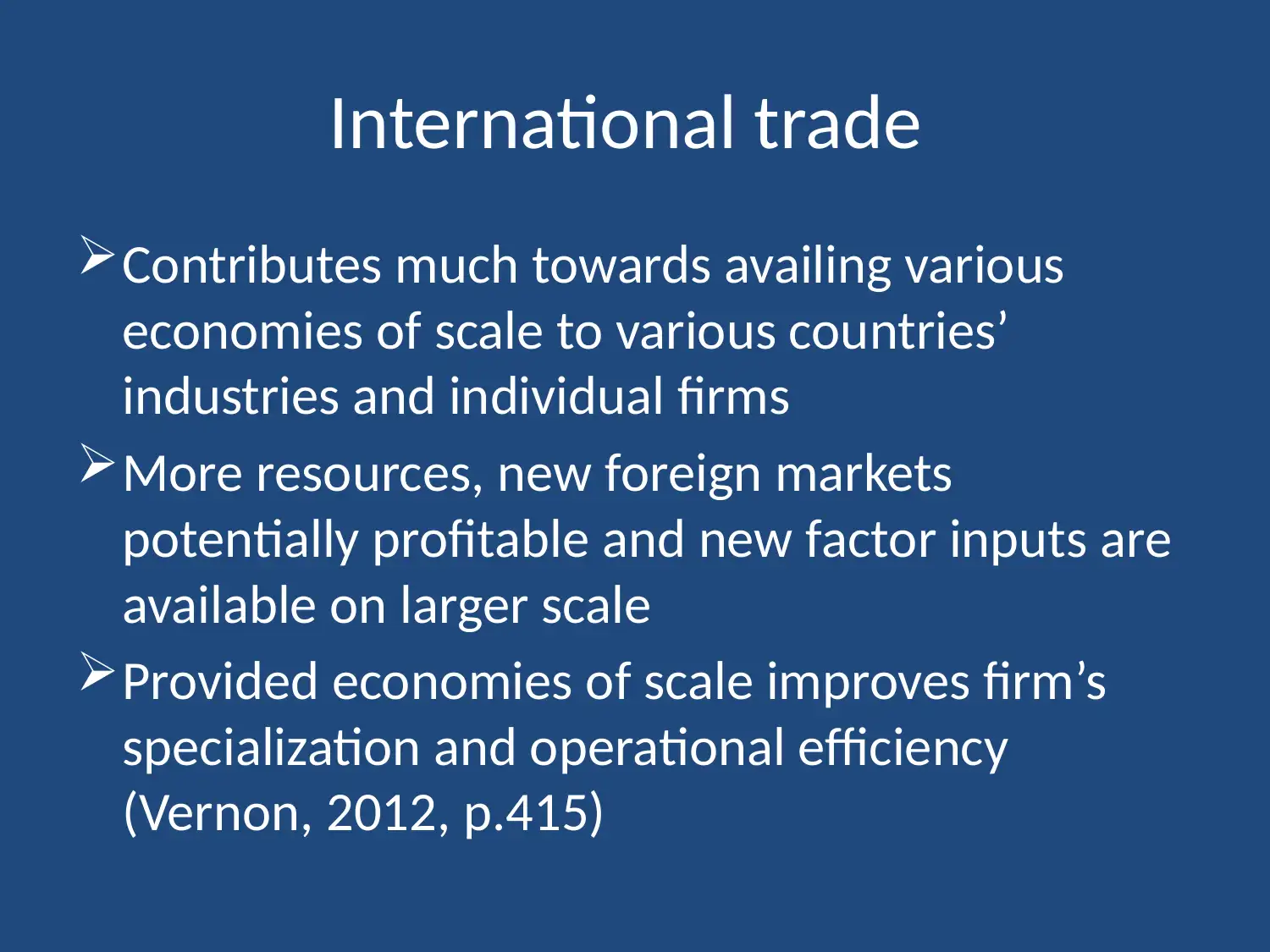

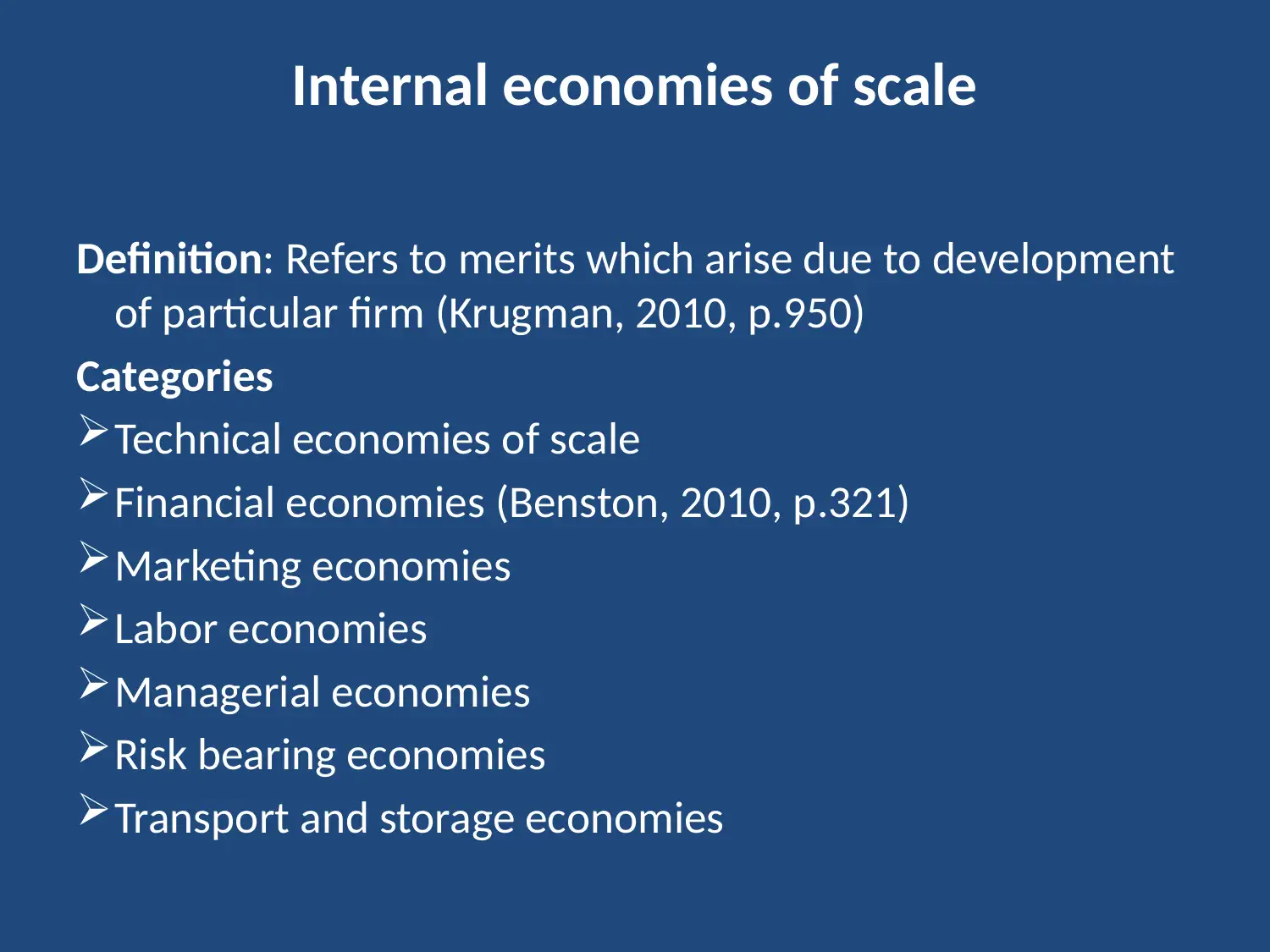
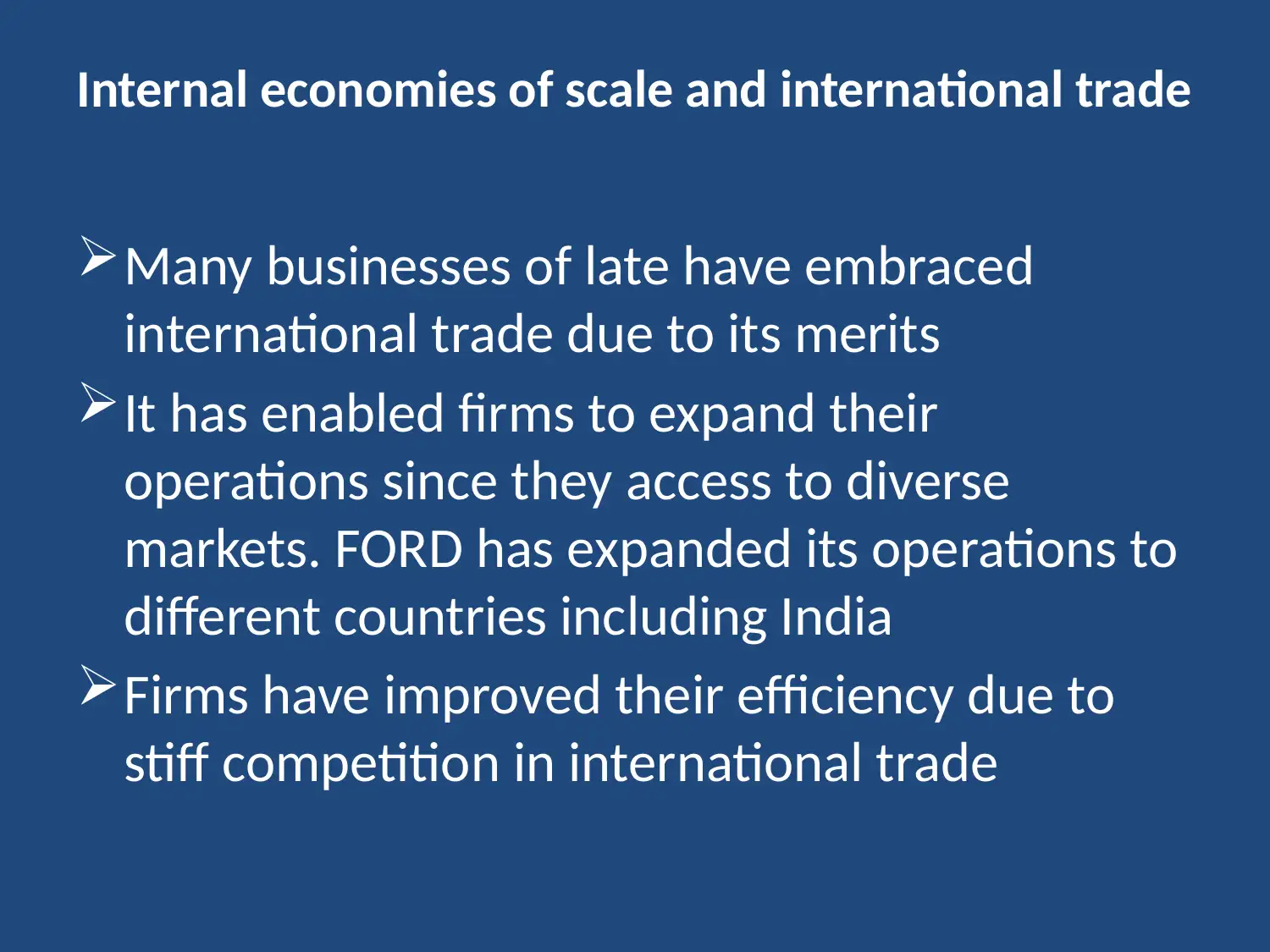
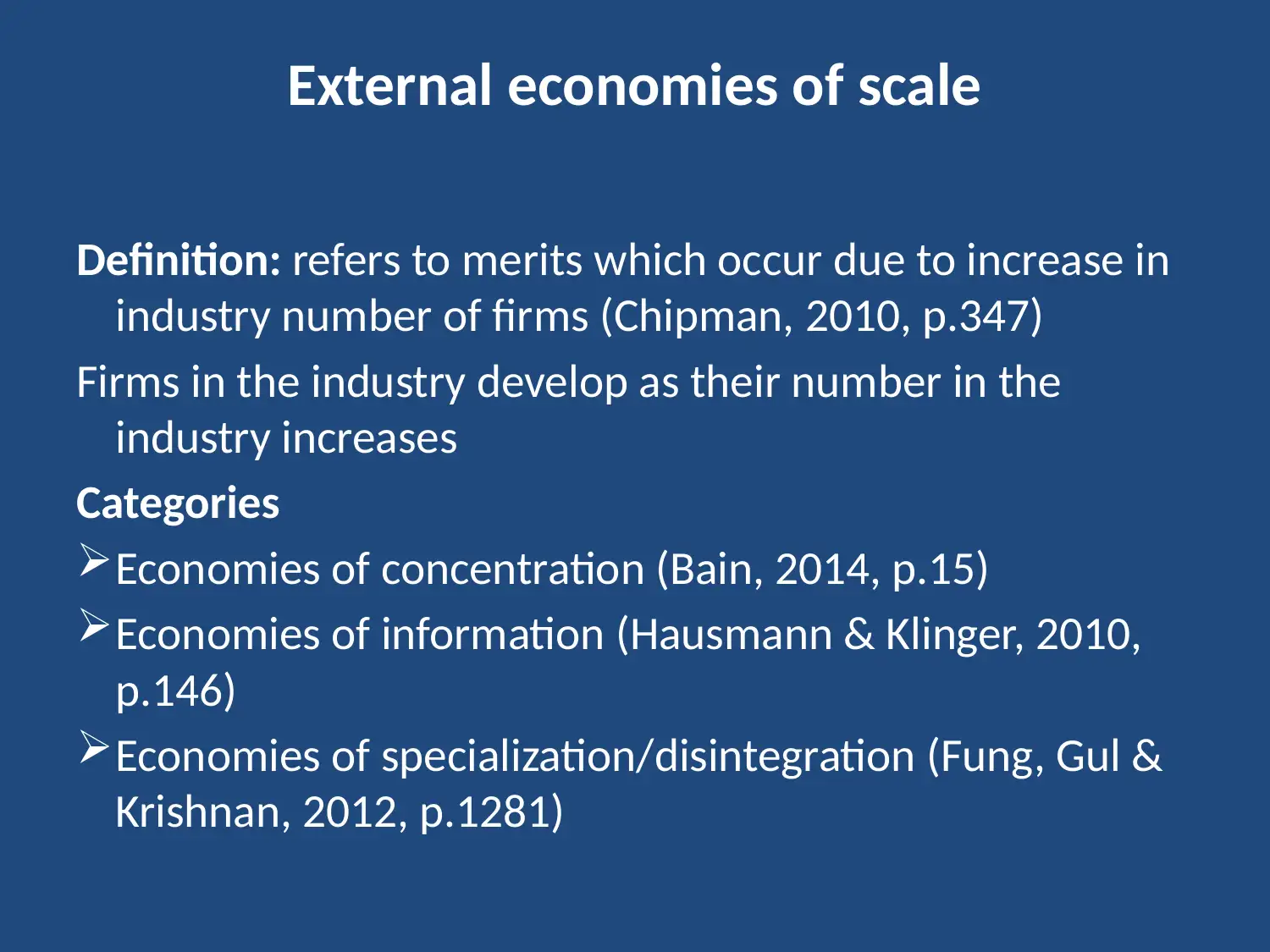
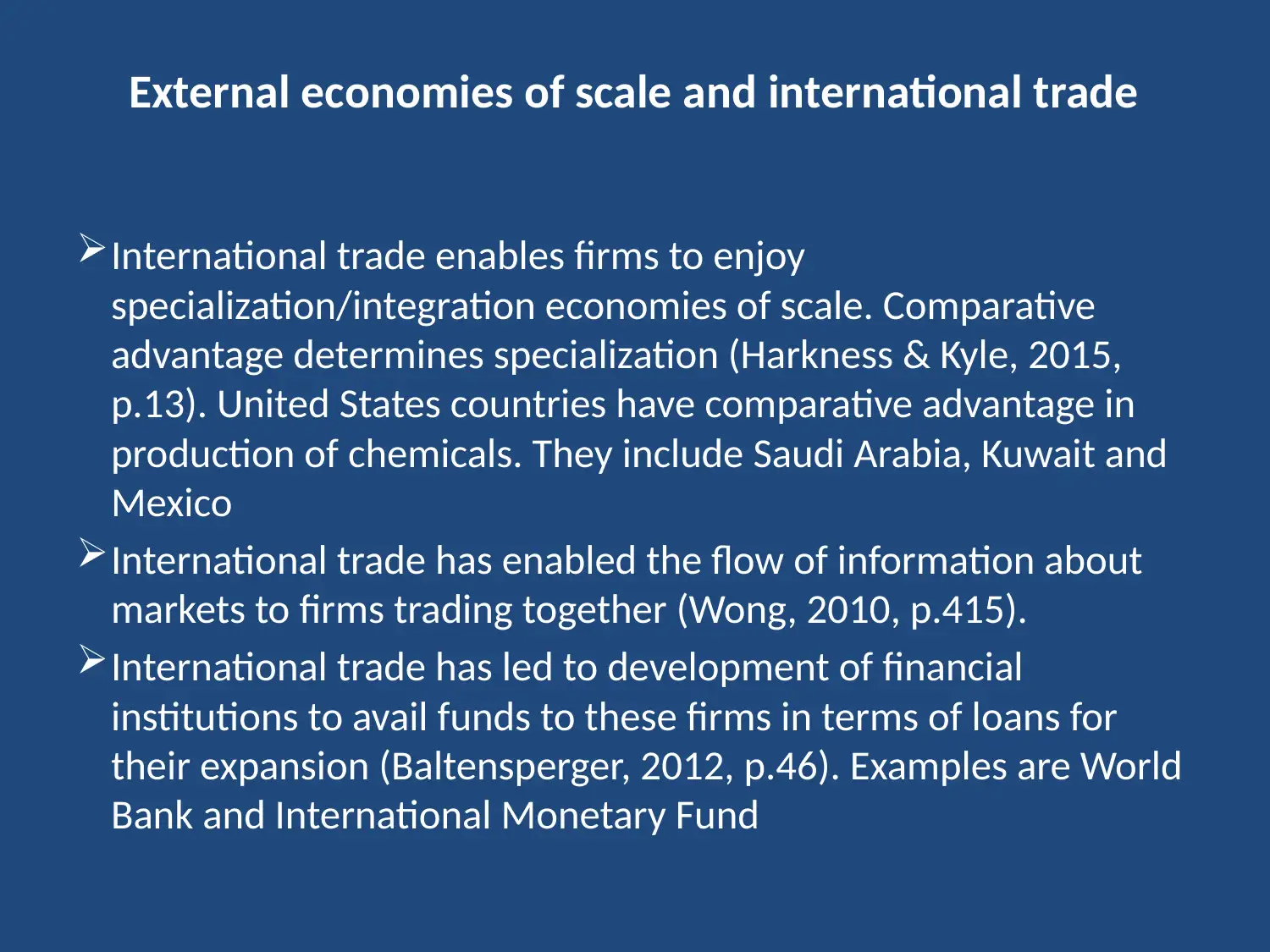
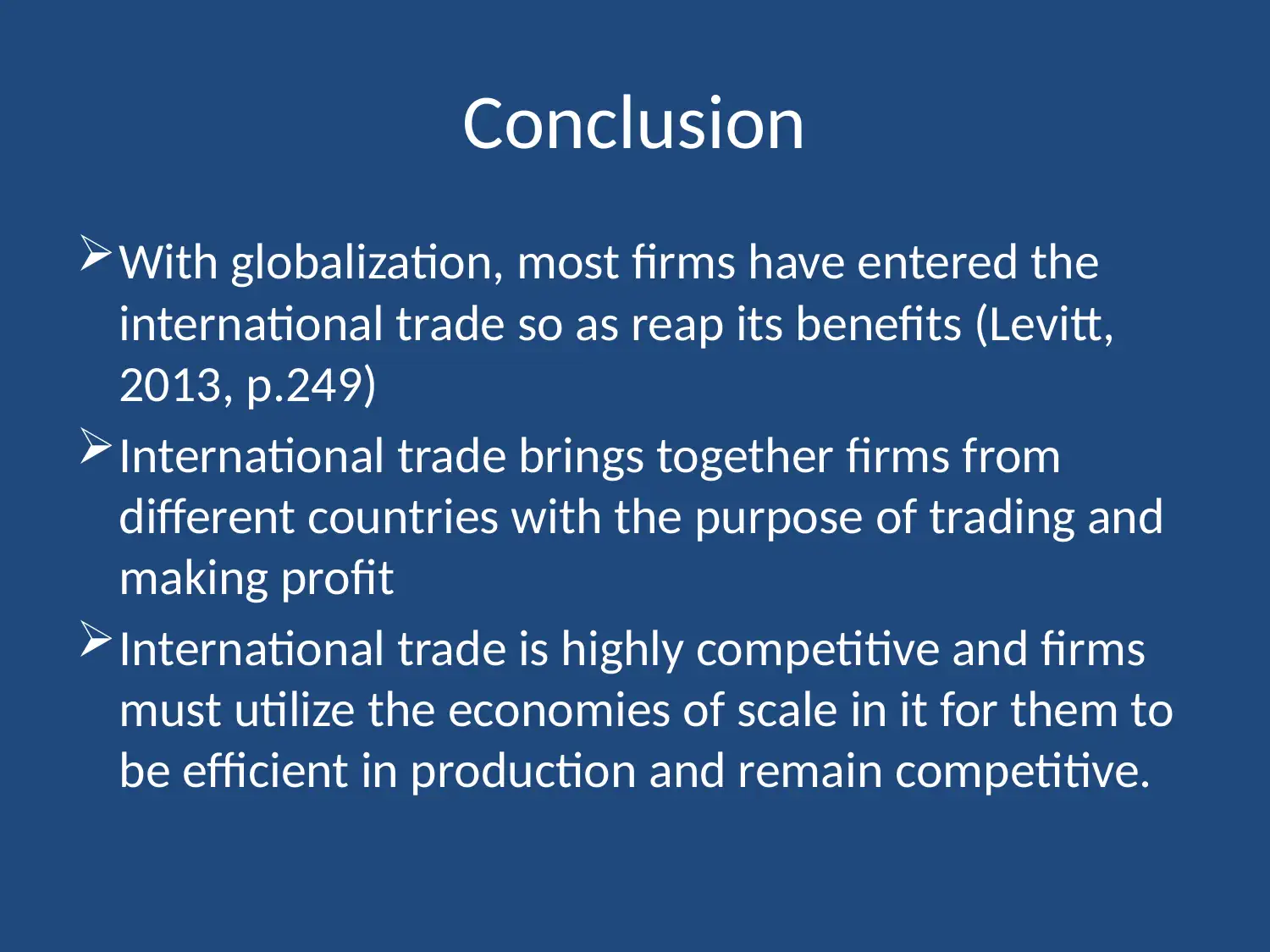






![[object Object]](/_next/static/media/star-bottom.7253800d.svg)